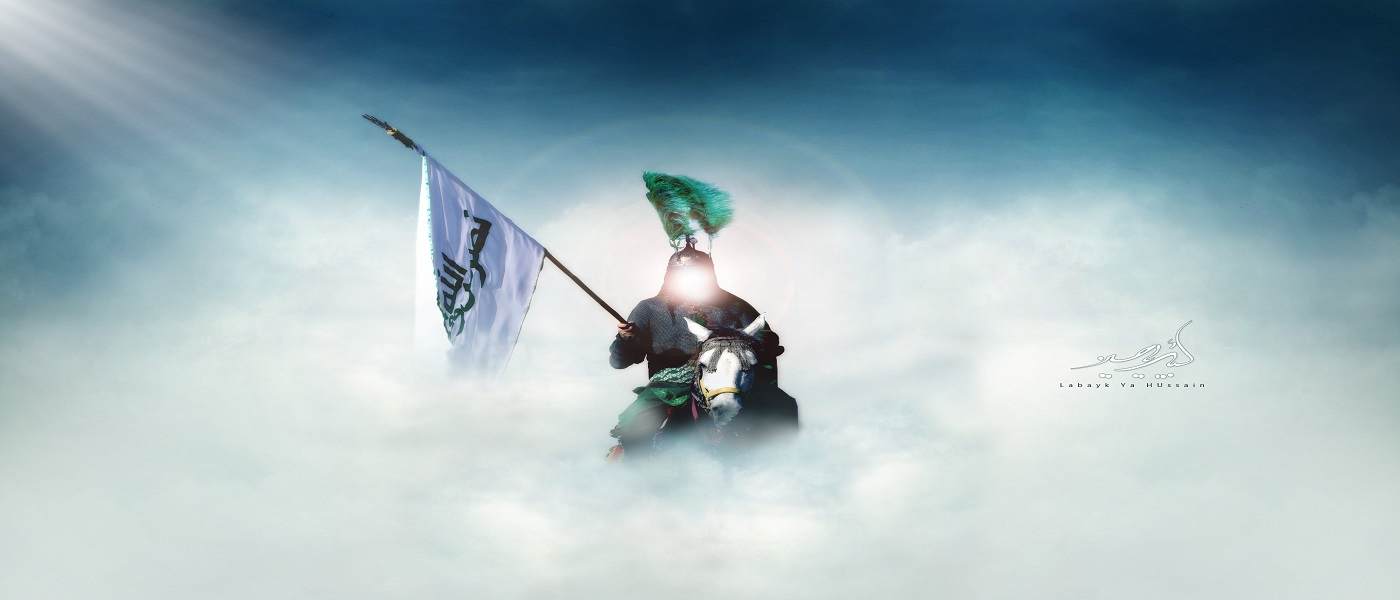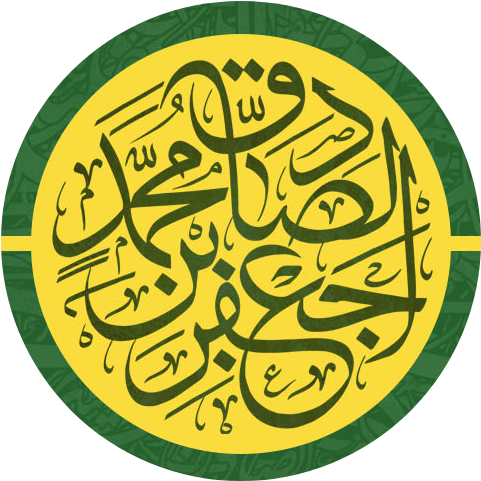

Who Was Prophet Muhammad (PBUH&HP)? Why Is He Believed As a Prophet?
"Indeed Allah and His angels bless the Prophet; O you who have faith! Invoke blessings on him and invoke Peace upon him in a worthy manner." Quran (33:56)
Prophet Muhammad (PBUH&HP) was the last messenger sent by Allah to guide human beings toward a more prosperous and meaningful life. His life was full of challenges and difficulties. However, he never gave up on his holy mission and strived to save as many souls as he could. His characteristics were unique and exemplary, which made him the best choice for prophethood, the beloved of Allah (Habibullah).
Family background
Prophet Muhammad (PBUH&HP) was the son of Abdullah and Amina, the grandchild of Abd al-Muṭṭalib and from the Banu Hashim clan. He was born in Mecca about the year 570 A.C, in the month of Rabi’ al-awwal [1]. Being taken care of by his paternal grandfather, Abd al-Muṭṭalib, and then by his uncle Abu-Talib, father of Ali (AS), who loved him a lot and regarded him dearer than his own children [2], he learned a little about the merchandise. He was well-known and called Al-Amin, meaning the trustee, due to his honesty and faithfulness [3]. This reputation attracted Khadijah, and she proposed him for marriage. He married this 40-year-old woman at the age of 25 [4]. This was a happy marriage, by all means. They lived a happy life, and they had many children, of which all the male ones passed away, and their most famous daughter is Fatimah (AS). Little is known about his youth before becoming a prophet. One fact is certain; he was absolutely against the discriminating behaviors and beliefs of the people of his era.
Prophet Muhammad (PBUH&HP)'s Social, Political and Personal Life
Prophet Muhammad (PBUH&HP) was a kind and generous man. He was known for his modesty, honesty, and trustworthiness. He never disrespected anyone and cared a lot about his appearance in society; although his clothes were mostly ragged, they were neat and clean. His hygiene was another important fact in his life. Family, as the smallest unit of society, was the most important thing for him. He had a deep respect for his wife and her daughters, especially Fatimah [5].
His political life started with inviting the members of his family and clan to Islam, and then, publically announcing Islam as the true faith sent by Allah for human beings. Soon after the public announcement, many of the heads of clans began to rise against him, and he migrated to Medina, and there, he formed the first Islamic government. His strategy was friendship and peace, and the Quba mosque was the center of his government [6]. He never forced anyone to convert to Islam. Instead, he brought logical words and verses of the Quran and spoke gently with the people he wanted to invite. Even when he tried to ask people of the other religion to convert to Islam, he used their own words and verses from their holy books. All in all, he followed the steps Allah had taught him to guide human beings to the right path:
“Invite to the way of your Lord with wisdom and proper instruction, and argue with them in the best way. Indeed, your Lord is most knowing of who has strayed from His way, and He is most knowing of who is [rightly] guided." (16:125)
Harra Cave: Islam Comes to Life
It was a tradition among some Hashemi Arabs, Called Hunafa, to go to the Harra cave during the month of Ramadan and then come back after the end of the month. Actually, it was Prophet Muhammad’s (PBUH&HP) grandfather who made it up. Muhammad(PBUH&HP) was not an exception.
On the contrary, he was one of the fans of staying alone in that cave and worshiping Allah, his only God and the God of his fathers, up to prophet Abraham [7]. On one of those nights of Ramadan, Gabriel descended to him and asked him to read. Muhammad (PBUH&HP) said: “I can’t.” Gabriel repeated, and he again denied. Then Gabriel recited the first verses of the Quran sent by Allah:
Recite in the name of your Lord who created -
Created man from a clinging substance.
Recite, and your Lord is the Most Generous –
Who taught by the pen -
Taught man that which he knew not. (96:1-5)
Muhammad’s (PBUH&HP) great mission had started. He found out that it was not a typical experience. He came back home and then returned to the cave. All of The Holy Quran descent to him in one of those holy nights:
"Indeed, We sent the Qur'an down during the Night of Decree." (97:1)
The Quran; not His only Miracle
That Quran was descended to Prophet Muhammad (PBUH&HP) in one night and that he became able to read in a few minutes is not the only miracle of Prophet Muhammad (PBUH&HP). He had other miracles like dividing the moon into two, reviving the dead, the testify of stones in the palm of his hand, etc. we are going to discuss these miracles in our next articles broadly [8].
The fact is that the events of that night of Ramadan made Muhammad (PBUH&HP) a prophet. Later on, people interacted with him, saw, felt, and understood his truthfulness, and stepped on the path of Islam. His lifestyle, social, political, and even family interactions carried badges of acceptance and appreciation that were imitated by the truth-seeking people. He was not the prophet belonging to centuries ago, but of all guided human beings.
References:
- "Early Years". Al-Islam.org. Retrieved 18 October 2018.
- Baqdadi, Ibn-Sad Tabaqat Al-Kubra Vol. 1, P 96
- Shirazi, Huhammad Sadiq The Prpphet Muhammad, a Mercy to the World at: <https://www.al-islam.org
- Ibid 2, P. 105
- A survey on Prophet Muhammad’s Behaviours, Hossun, Vol. 9 at:< https://hawzah.net
- Azizi, Musa Political Life of Prophet Muhammad Noghte PArgar Magazinem Pp 84-96 at: <http://hablolmatin.dmsonnat.ir
- Video Lecture of Yasir Qadhi at: < http://lifeofprophet.com/a-few-good-men-the-hunafa/>
- Abu Ibraheem. "Miracles of Prophet Muhammad". Why Islam. ICNA (Islamic Circle of North America). Retrieved 29 April 2019.
Share This Article

5 Questions that Reveal Imam Hussain (AS) Was against War
Looking at Imam Hussain (AS)'s movement and the incidents that took place on Karbala, one might wonder if Imam Hussain (AS) ever had the intention of going to war with Yazid or not. In what follows, we raise some questions that will reveal Imam Hussain (AS)'s real attitude toward war.
1. Why Would He Leave Medina to Mecca?
He did not wish to take the oath of allegiance of a ruthless and corrupt person as Yazid, so he decided to peacefully migrate from Medina to Mecca in which many people had not accepted Yazid’s oath of allegiance yet. In his will which he wrote before leaving Medina, he says:
“I am not leaving here out of selfishness or with the aim of oppression or corruption, but for the sake of improving Muslims’ condition of life. I want to enjoin the right (Amr bi-l-ma’ruf) and forbid the wrong (Nahy’ ani-l-munkar) and to act according to Prophet Muhammad (PBUH&HP)’s and Imam Ali’s (AS) way”.
2. Why Did Imam Hussain (AS) Take All His Property and His Family with Him?
His first motivation to leave Medina was migration, not war. So he left Medina to Mecca along with his family and companions without making any violent move against Yazid. On the day of Ashura on which Imam Hussain (AS) was martyred, 17 to 19 people of his family and relatives were among his companions, including some women and children. Among the martyrs of Karbala, also, there were five teenagers and children. One might ask, as Charles Dickens once asked if Imam Hussain (AS) were after worldly desires as taking over the throne, why would he take his family and children with him and risk their lives?
3. Why Would He even Go to Kufa? Should He Have Left Kufa People’s Letters Unresponded?
Imam Hussain (AS) had no intention of going to Kufa, but he was persuaded to do so by the many letters he received from Kufa people asking him to help them against Yazid’s tyranny. His speech in front of Hur’s army proves this fact:
“O’ people! This is my last word to you so that there would be no excuse in Allah’s presence. I would not come to you if you had not sent your letters and messengers and asked me to come to you. You told me that you didn’t have a leader and wanted Allah to guide you through me. So, if you still keep your words, I will come to your city, and if you don’t want me to come, I will return.”
4. Why Did He Refuse to Fight with Hur’s Army Despite His Strength?
When surrendered by Hur and his army, Zuhair, one of Imam Hussain’s (AS) companions, suggested fighting them. Since they were not still much in number and Imam Hussain’s (AS) camp had the strength to defeat them. However, Imam Hussain (AS) rejected his view and told him that if there would be a war, he did not wish to be its initiator, though he would defend himself if necessary.
5. Why Would He Wish to Postpone the War even for One More Day
Imam Hussain (AS) wanted to postpone the war as much as possible, not because he was afraid of fighting, but to give the enemy more time to think twice about their wrong decision. So, when on the evening of the 9th of Muharram, Umar ibn Sa’ad gathered his army and got them ready for the war, he sent them a message and asked them to postpone the war until the day after and he spent the night praying to Allah.
Even on the very day of Ashura, Imam Hussain (AS) did his best to dissuade the enemy of choosing the wrong path and losing the God-given blessing of life for a ruthless tyrant as Yazid and his vain intentions. That is because Imam Hussain (AS) who was the spiritual leader of Muslims and cared about their fate more than his own life, found it his responsibility to guide them toward what is right before it was too late [i].
Notes:
[i] For more information see Salam Islam's ebook: 40 Points about Imam Hussain (AS) and the Event of Karbala
Read More

The personality of Imam Sadiq (AS)
Ja’far ibn Muhammad (AS) known as the Ja’far as-Sadiq (AS) is the sixth Shiite Imam. Imam Sadiq (AS) was born on 17 Rabi al-Avval 83th (702 CE) in Medina. His father, the previous Imam, was named Muhammad al-Baqir (AS) and his mother was called Umi-Farvah. After his father, Imam Sadiq (AS) became the Imam of the Shias and his leadership lasted for about 34 years. The era of Imam Sadiq (AS) was the time of instability and wars, since the Umayyad dynasty were weakened so much due to the battles they had in the Islamic territory. In addition , Abbasid dynasty were trying to topple the Umayyad government and reign over the whole Islamic world. The weakness of the rulers gave Imam Baqir (AS) and Imam Sadiq (AS) a perfect opportunity to spread the teachings of Shiism and train so many Shia scholars. At last, Imam Sadiq (AS) was martyred by the order of the Mansur (an Abbasid Caliph) on 148 H (765 CE).
What does “Sadiq” mean?
The word “Sadiq” means an honest person who does not tell lies.
Once, Imam Sajjad (AS), the grandfather of Imam Sadiq (AS) was asked: “Who is the Imam after you?”
“My son Muhammad (AS) who opens knowledge and after him his son Jafar who is called in the skies as ‘Sadiq’” Imam Sajjad (AS) replied.
He was asked once more: “Why out of you all, he is called “Sadiq” while you all are honest?”
Imam Sajjad (AS) said: “Because the Prophet (PBUH & HP) said: ‘Name my son Jafar ibn Muhammd as “Sadiq” because there will be another Jafar in the future who falsely claims to be an Imam and he is named “liar” by Allah’” (On the contrary, Jafar ibn Muhammad is honest because he is a true Imam). (1)
The liar Jafar mentioned in the hadith is the son of Imam Hadi (AS), the eleventh Imam.
The knowledge of Imam Sadiq (AS)
All Shiite Imams were known for their abundant knowledge in their time; but among all, Imam Baqir (AS) and Imam Sadiq (AS) were different. Due to the fact that Umayyad dynasty were weak and unstable in those times, Imam Baqir (AS) and Imam Sadiq (AS) had this chance to unveil the abundant knowledge of the Prophet’s household.
About 4000 people learned from Imam Sadiq (AS) and narrated hadiths from him . (2)
Amr ibn Abi al-Mighdam, a Sunni scholar, says:
“Every time I looked at the face of Jafar ibn Muhammad (AS), it would make me sure that he is a descendant of the prophets. Once, I saw him in Jamrah (a place in Mecca where the pilgrims gather) and he was telling people: ‘Ask me! Ask me!’” (3)
Hassan ibn Ali al-Vasha, a Shiite hadith narrator, says:
I saw about 900 sheikhs who all would narrate hadiths from Jafar ibn Muhammad (AS) (4).
Once Abu Hanifah, one of the most knowledgeable and popular Imams of the Sunnis, was asked: “Who do you think is the most knowledgeable person in religious fields?” he said: “I do not know anyone more knowledgeable than Jafar ibn Muhammad (AS)” (5).
Imam Sadiq (AS) is mostly known for his knowledge in Islamic laws and because of this, the Shiite school of law is called “Jafari School”. The hadiths narrated from Imam Baqir (AS) and Imam Sadiq (AS) are more than all the hadiths narrated from the Prophet (PBUH & HP) and the other Imams all combined together.
The moral attributes of Imam Sadiq (AS)
In addition to his wisdom and knowledge, Imam Sadiq (AS) was also known for his significant moral qualities.
Muhammad ibn Talha says:
“Imam Sadiq (AS) was the greatest person among the Prophet’s household and he was so knowledgeable and he would pray and recite the Quran so much and he was an ascetic person.” (6)
Malik ibn Anass, one of the Sunni school’s head, says:
Every time I met him, he was in one of these three moods: either praying, fasting or whispering prayers (7).
Hisham ibn Salim, a famous apprentice of Imam Sadiq (AS) says:
Abu-Abdillah (Imam Sadiq (AS)) would always take a bag full of bread, meat and money in the darkness of the nights and go to the house of the needy ones in Medina and give it to them while they didn’t know him. Then, when he died, the people weren’t given those goods anymore and from that, they found out about his identity. (8)
Resources
- Al-Khara’ij, ar-Ravandi, vol.1, pg.268
- Al-Irshad, Sheikh Mufid, vol.2, pg.179
- Siar A’lam an-Nubalah, Zahabi, vol.6, pg.257
- Rijal al-Kashi, vol.1, pg.138-139
- Siar A’lam an-Nubalah, Zahabi, vol.6, pg.257
- Kash al-Qummah, Irbeli, vol.2, pg.691
- Bihar al-Anvar, Majlesi, vol.47, pg.16
- Kafi, Koleini, vol.4, pg.8
Read More

